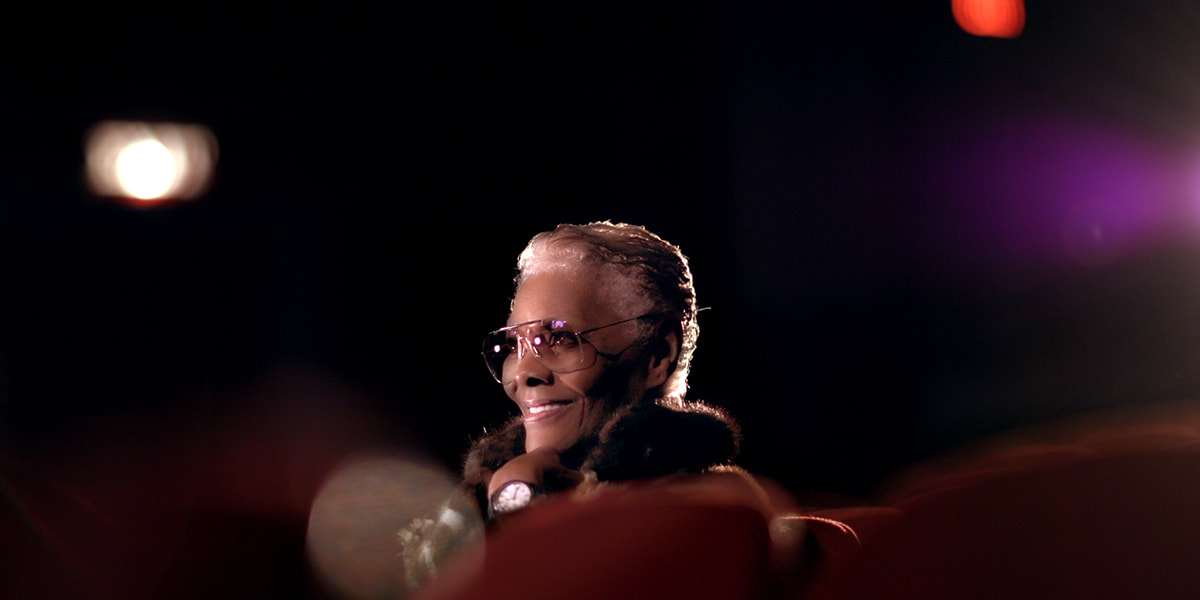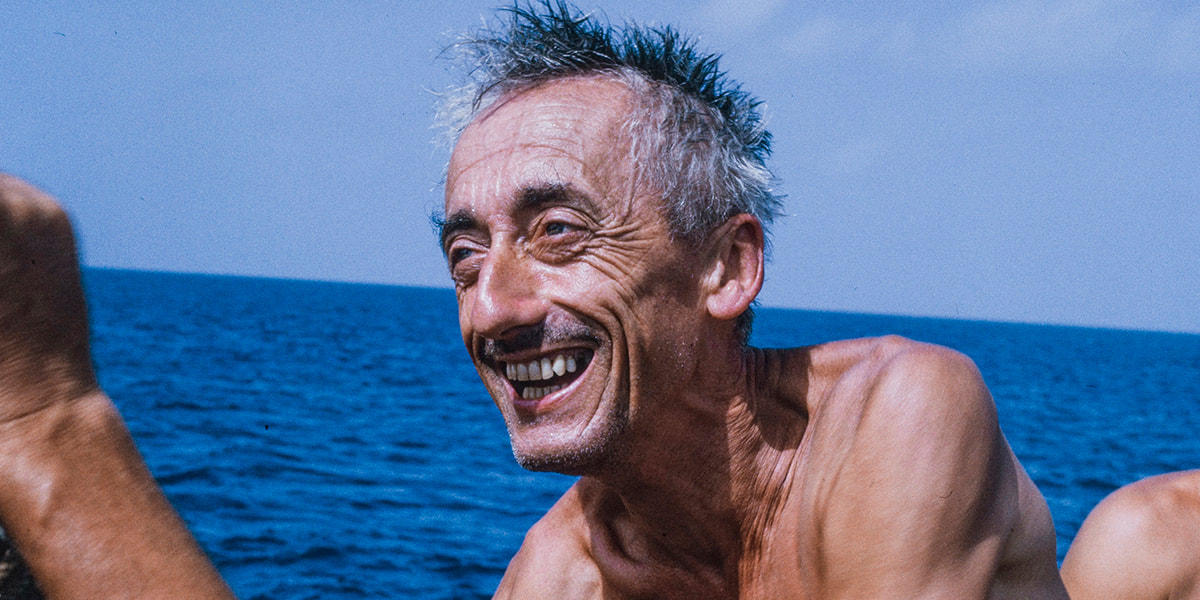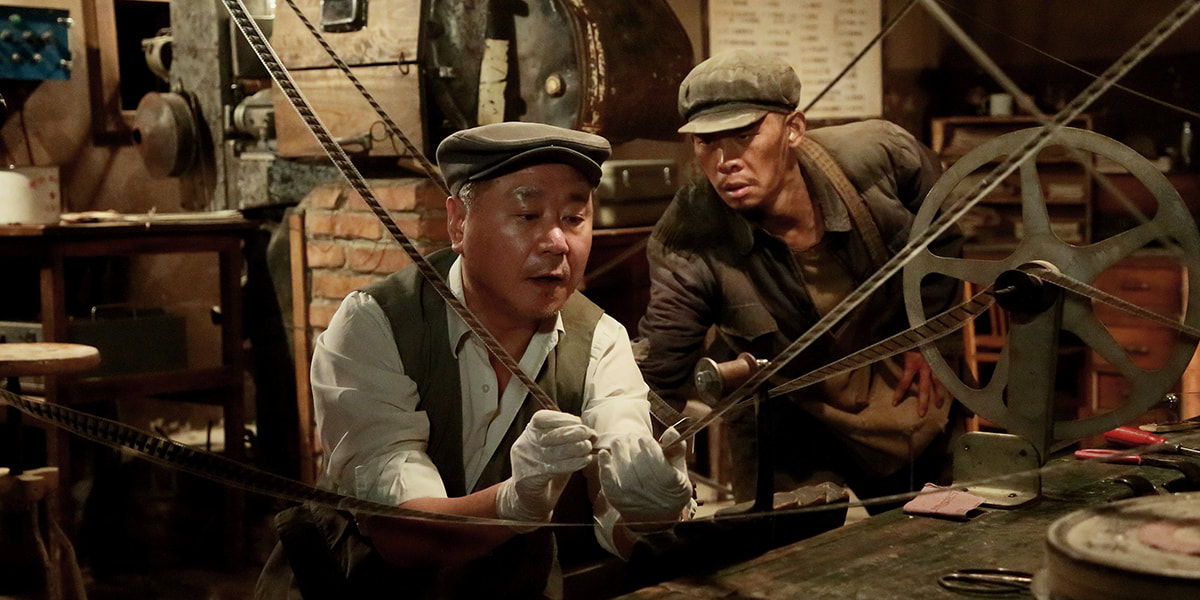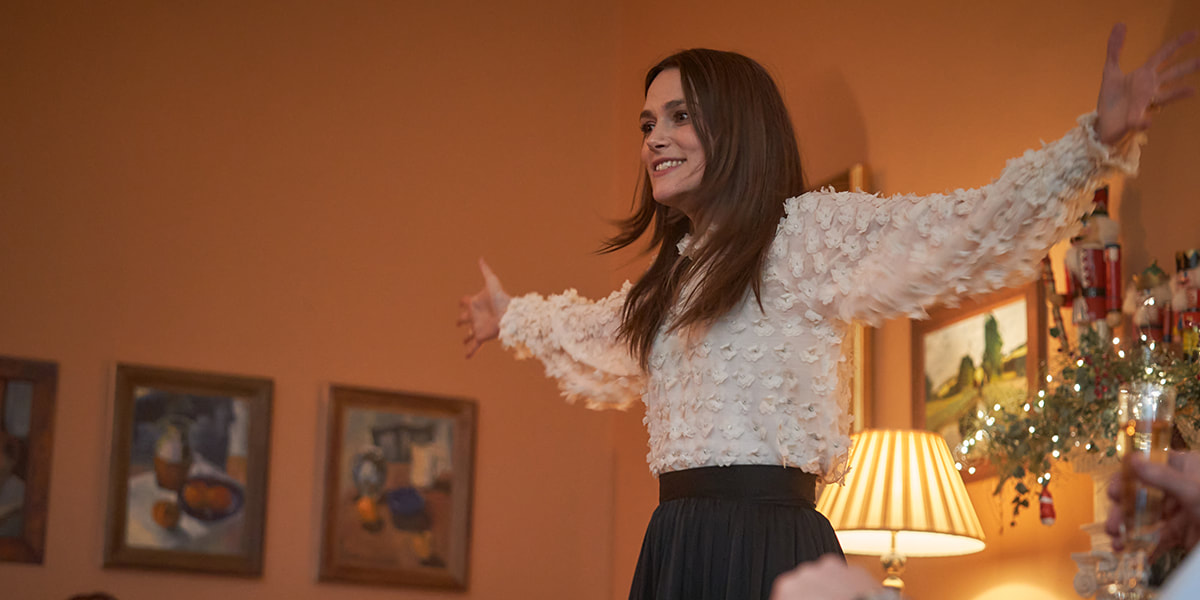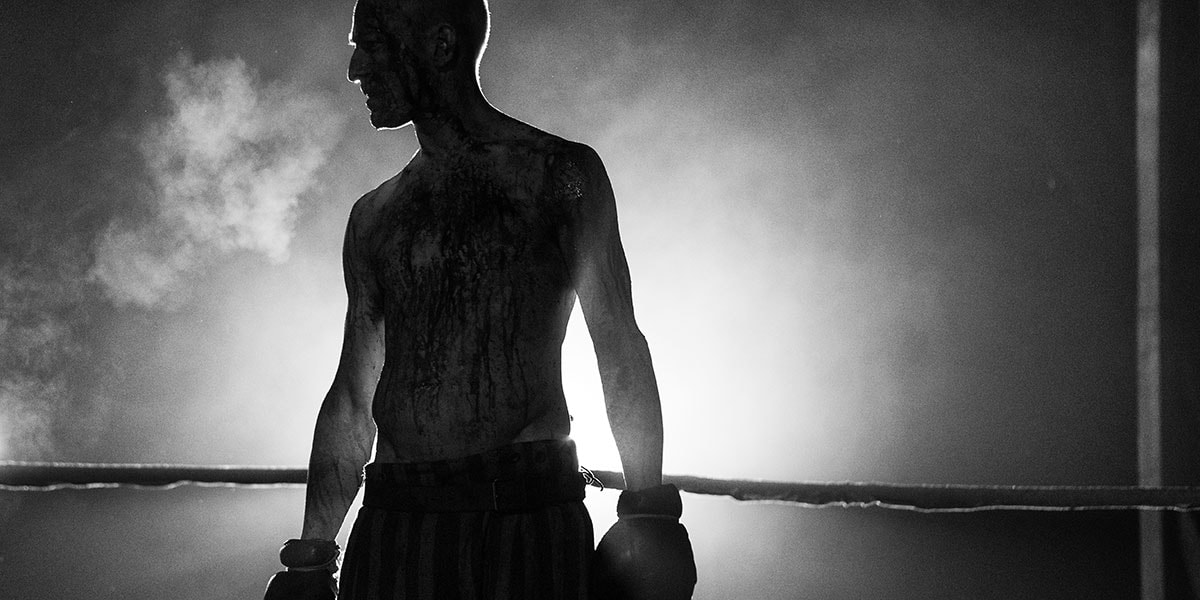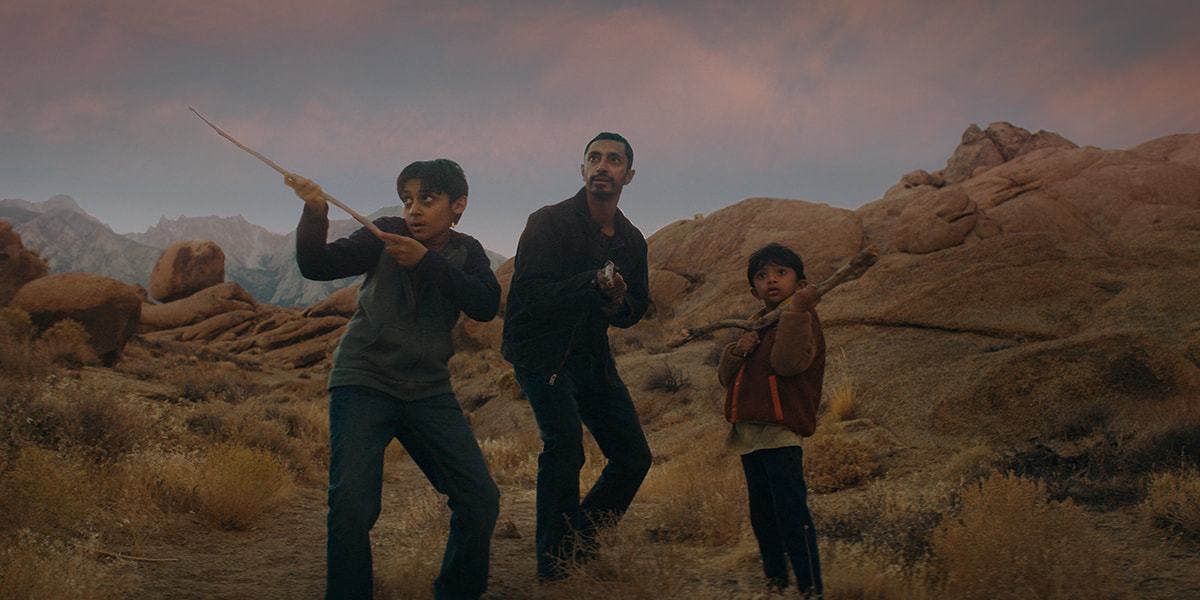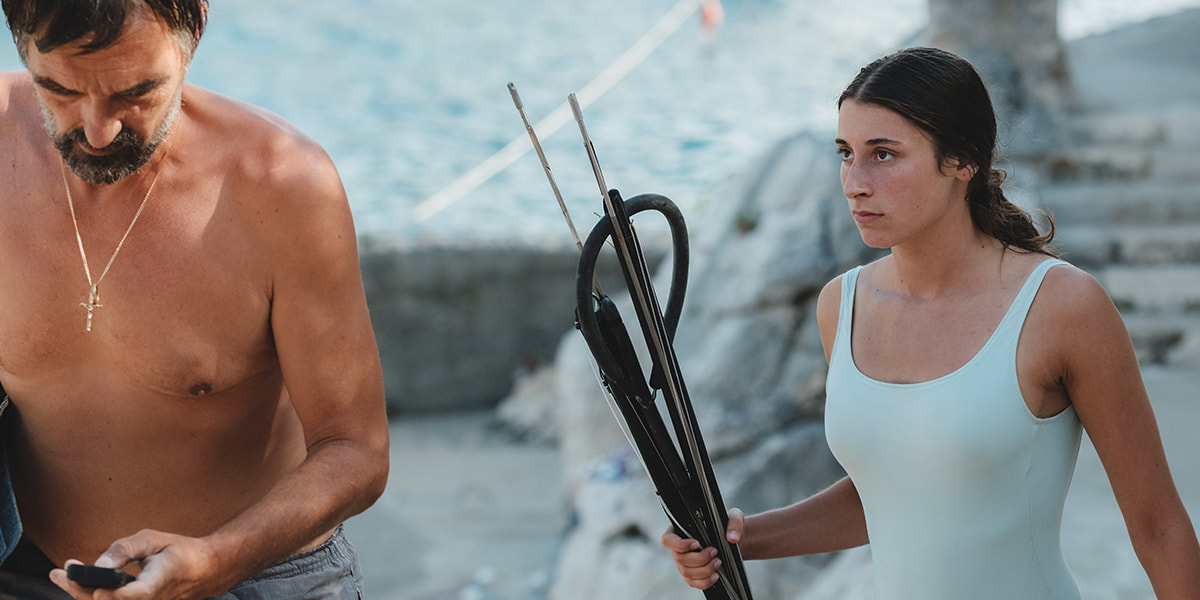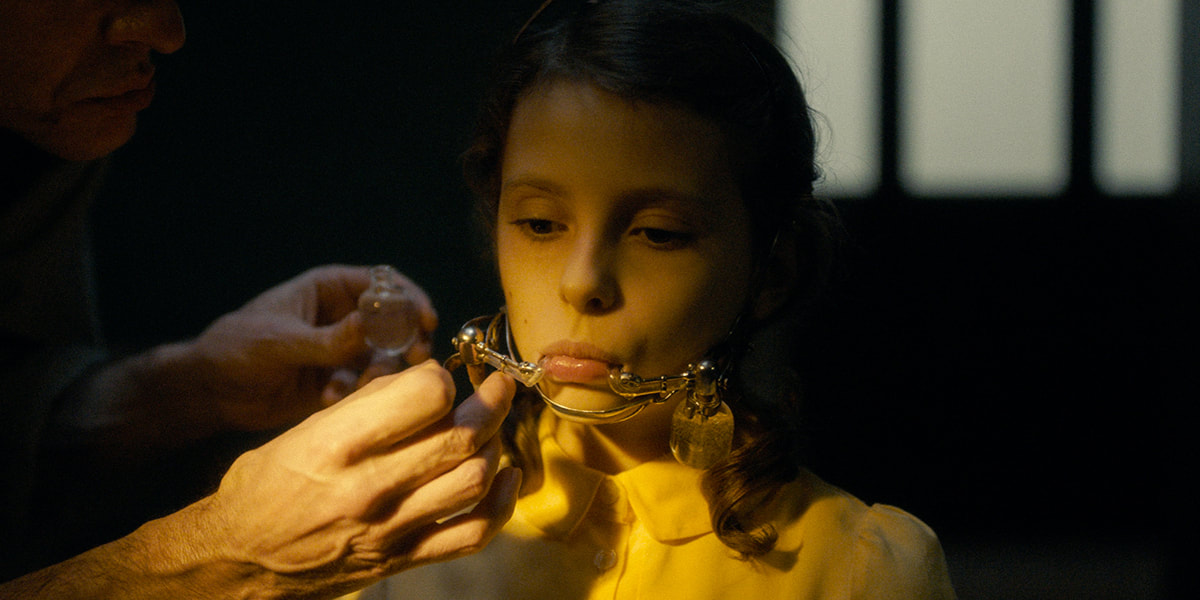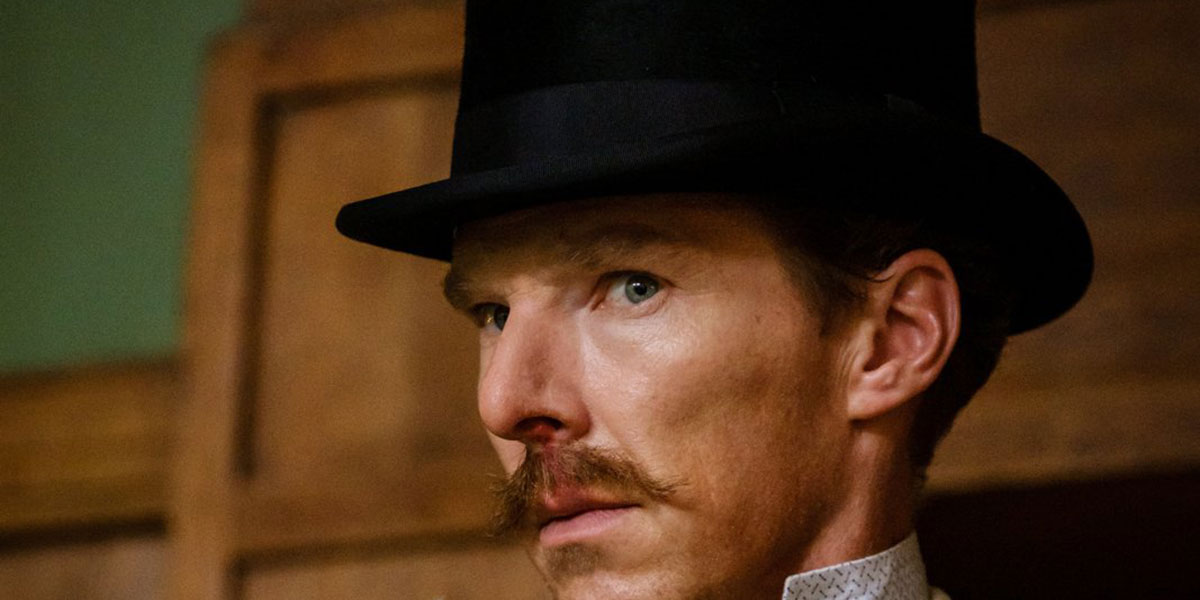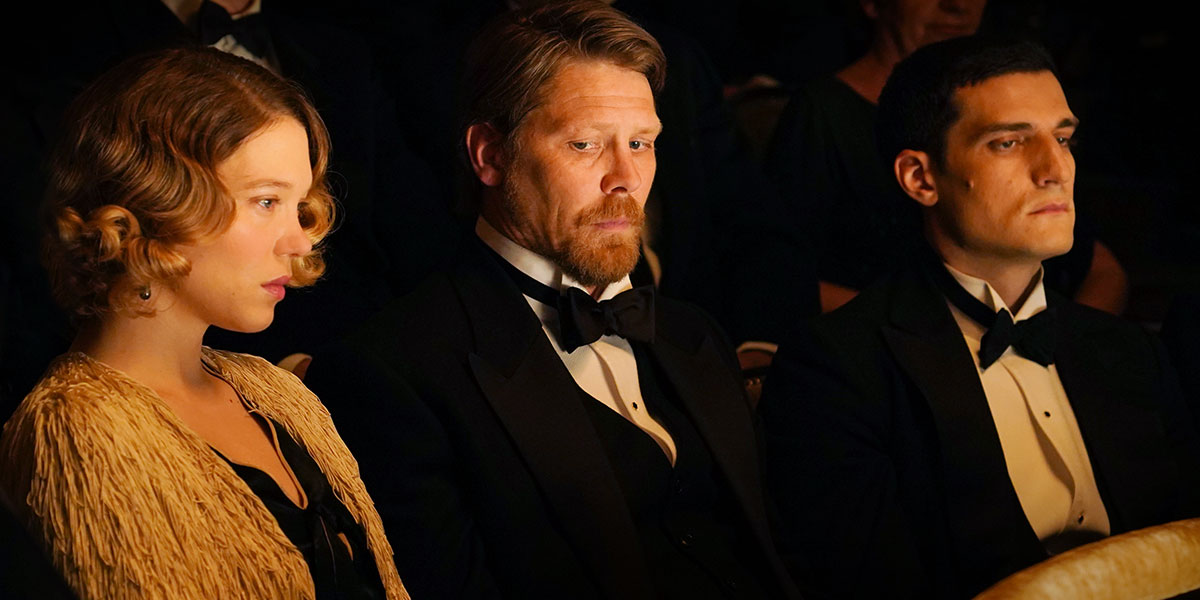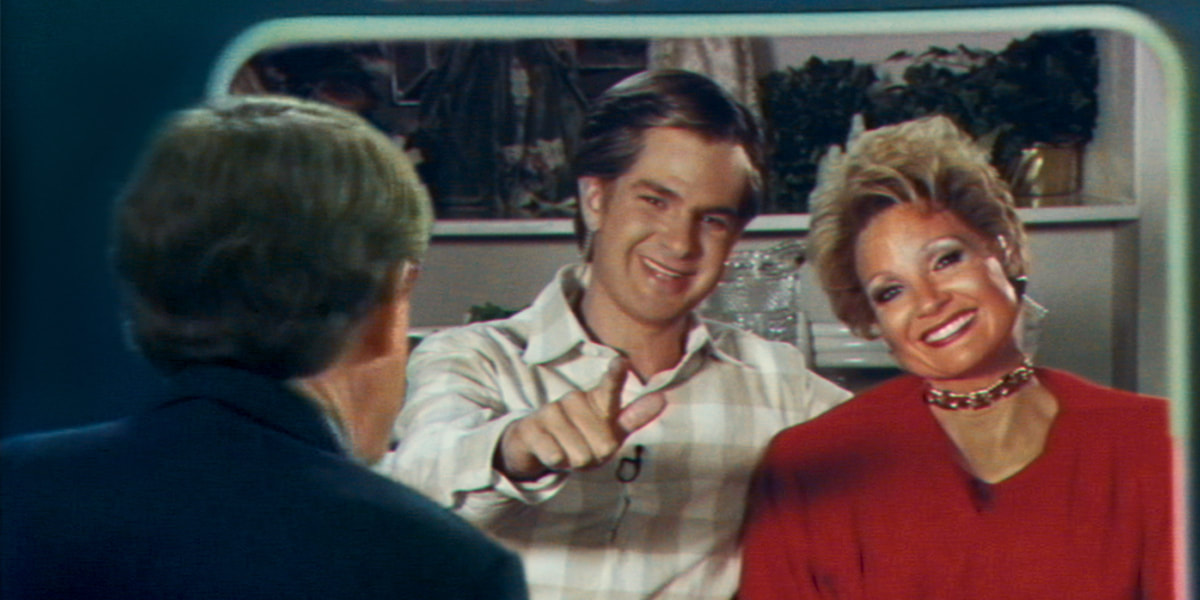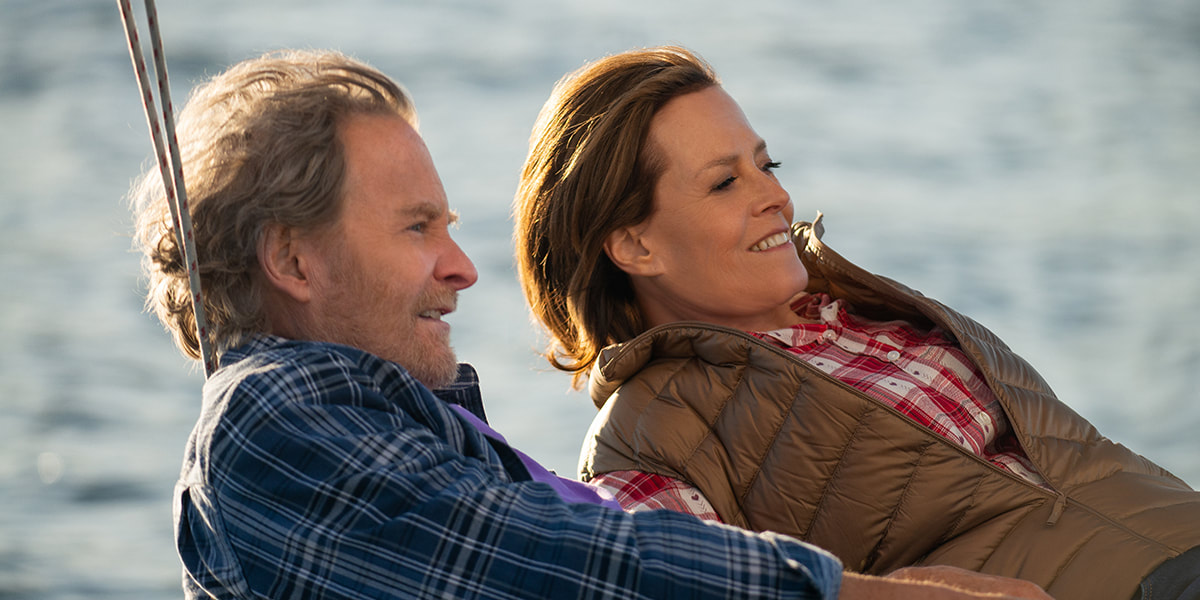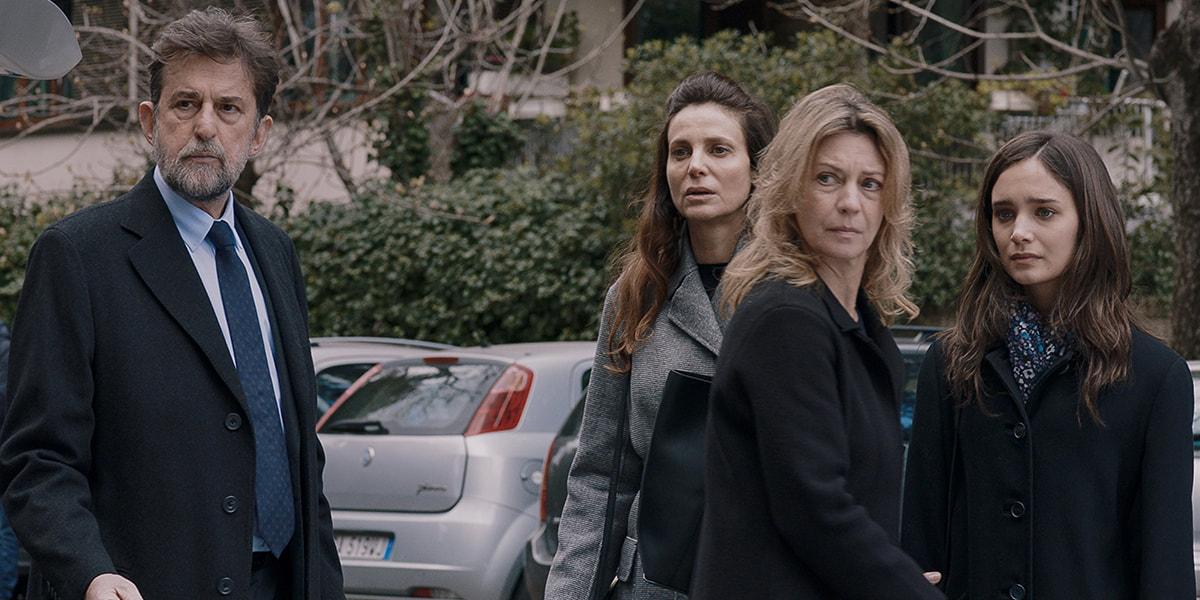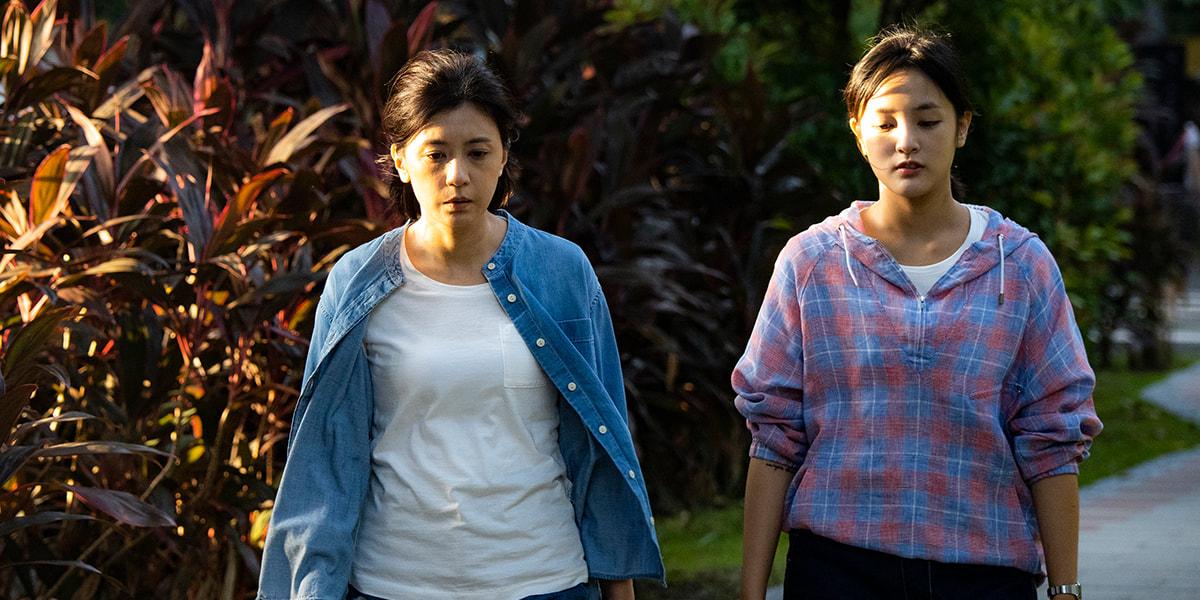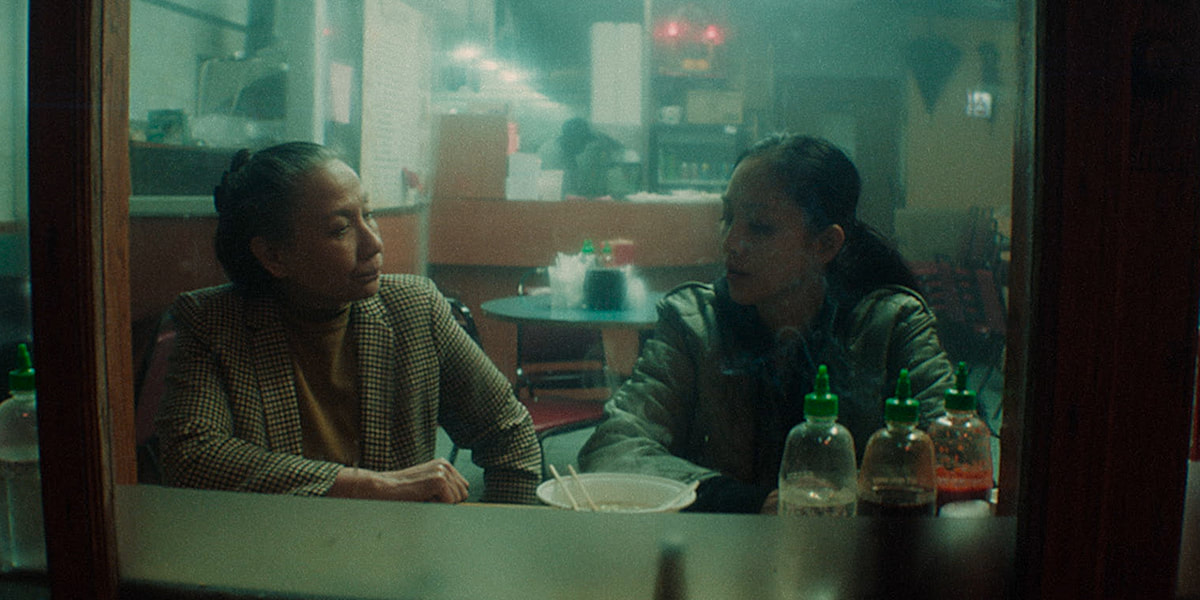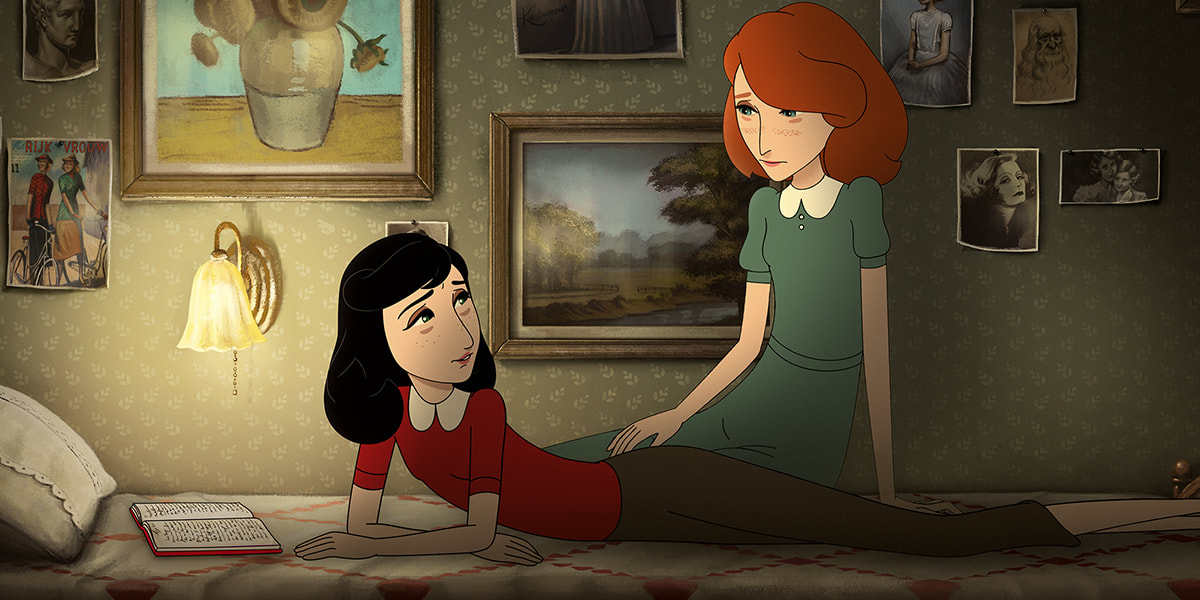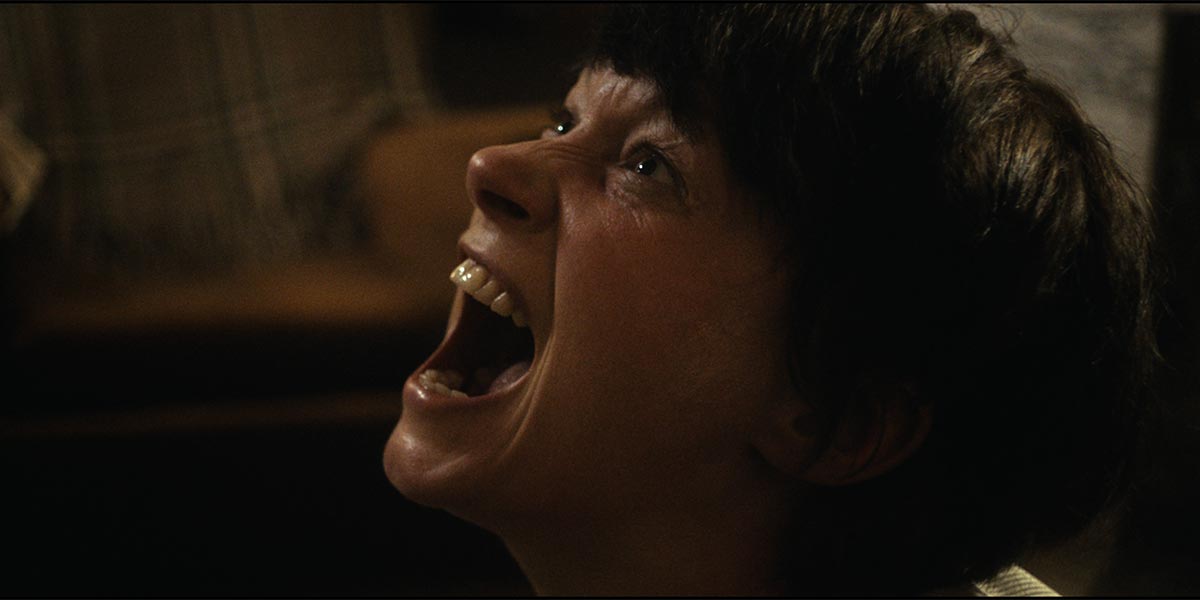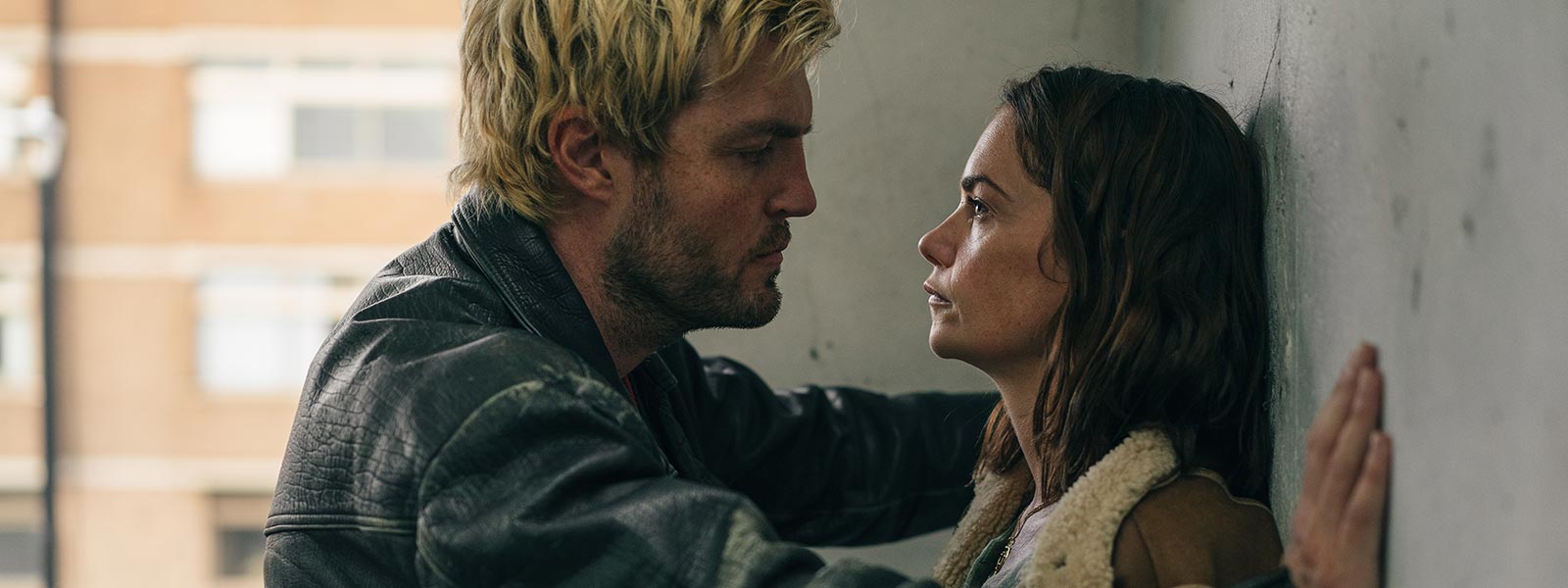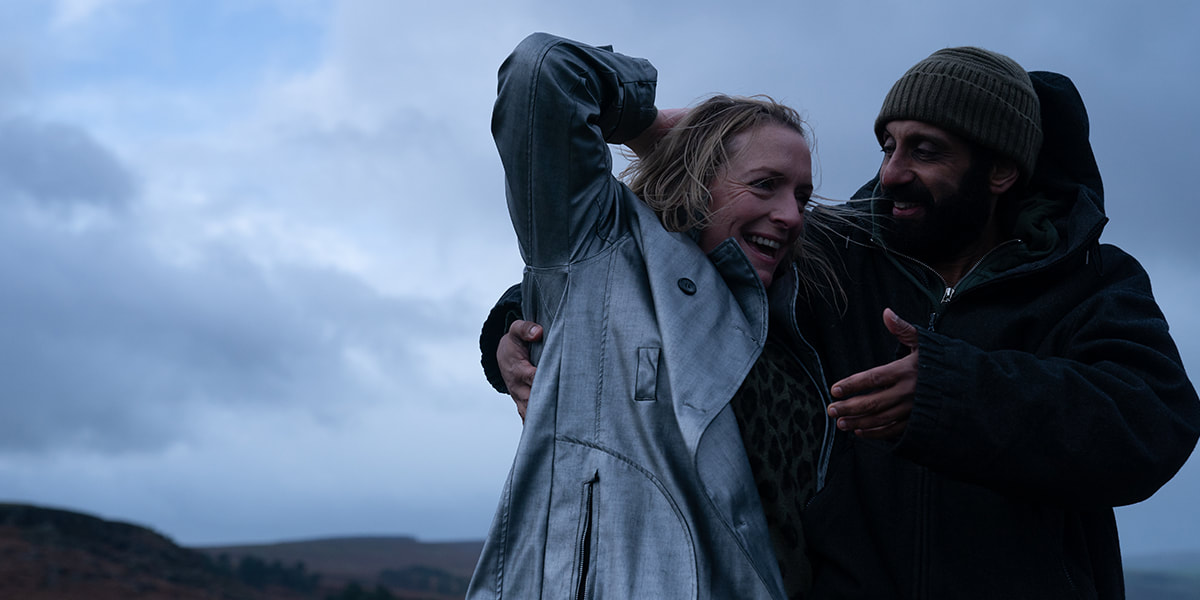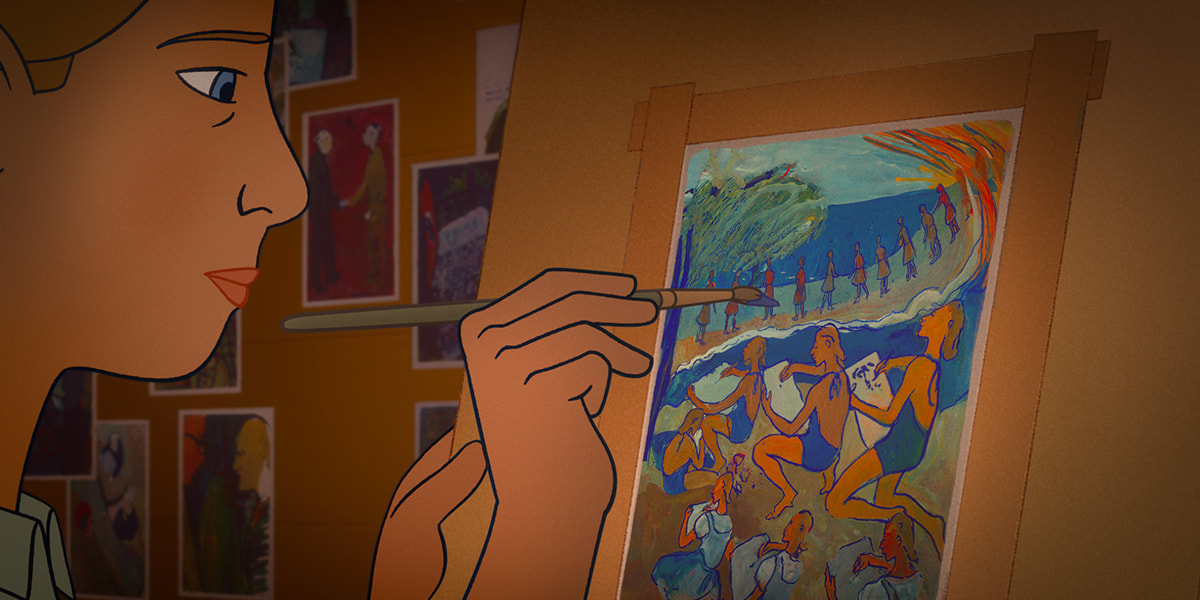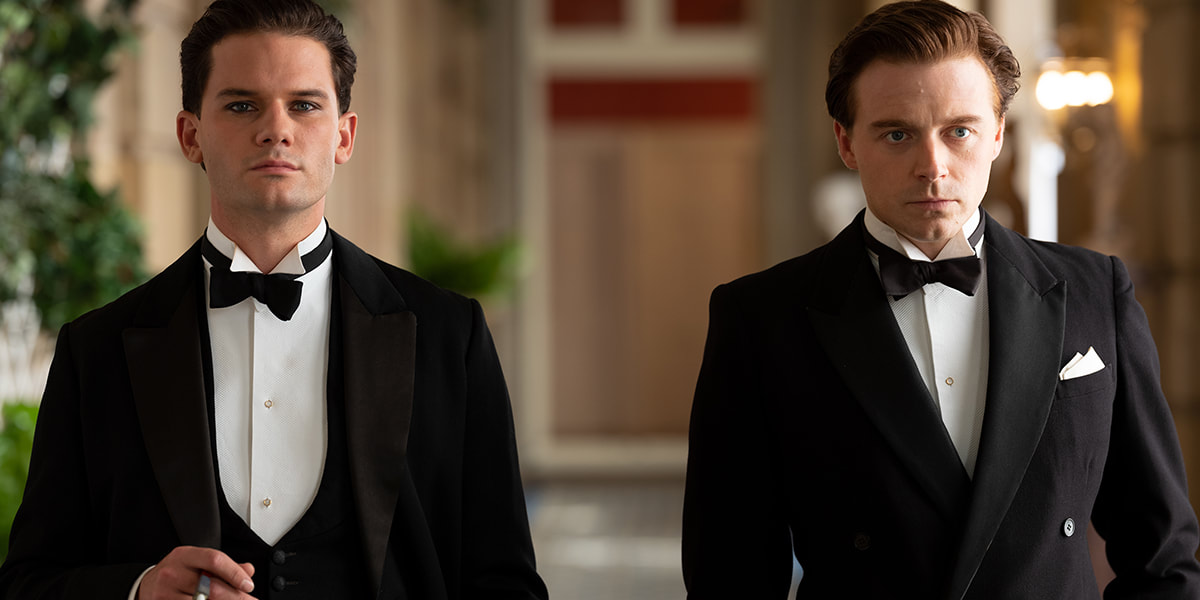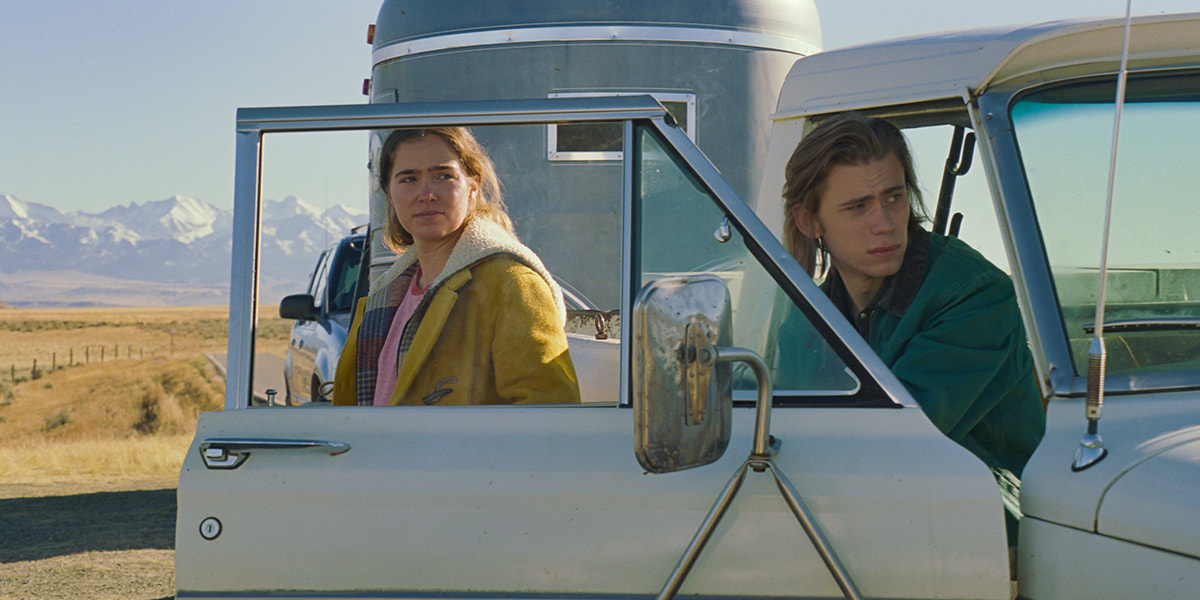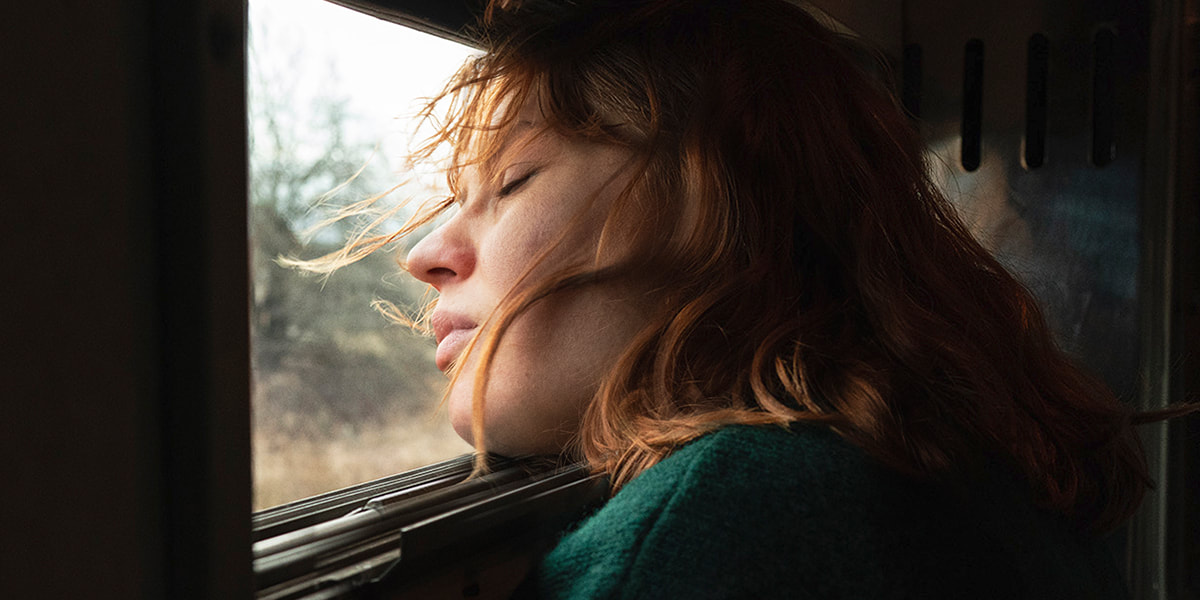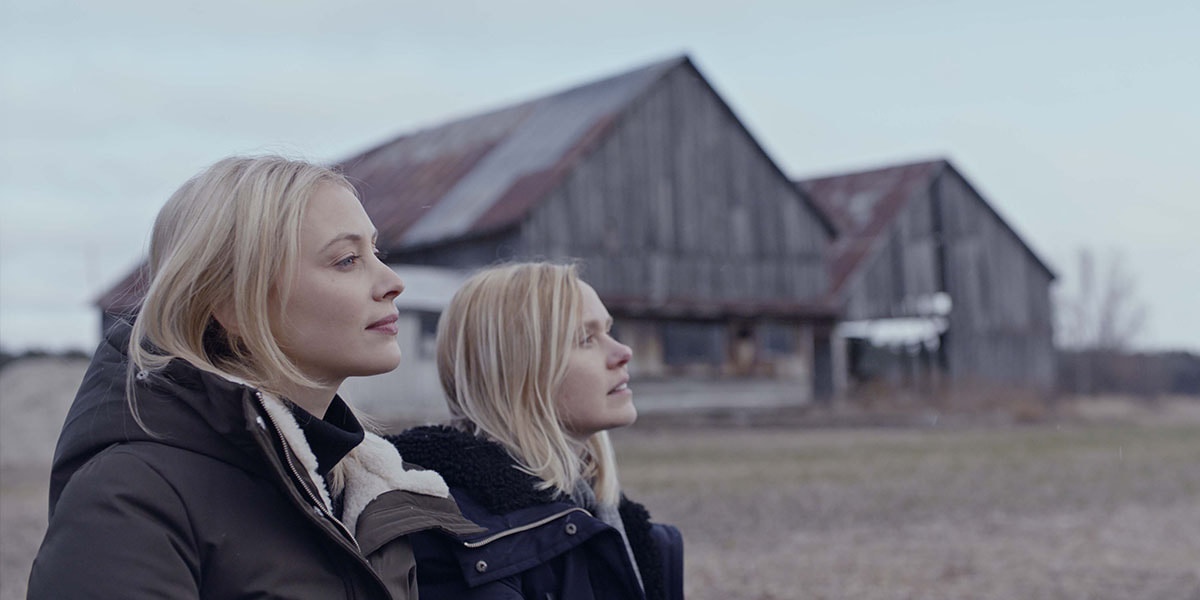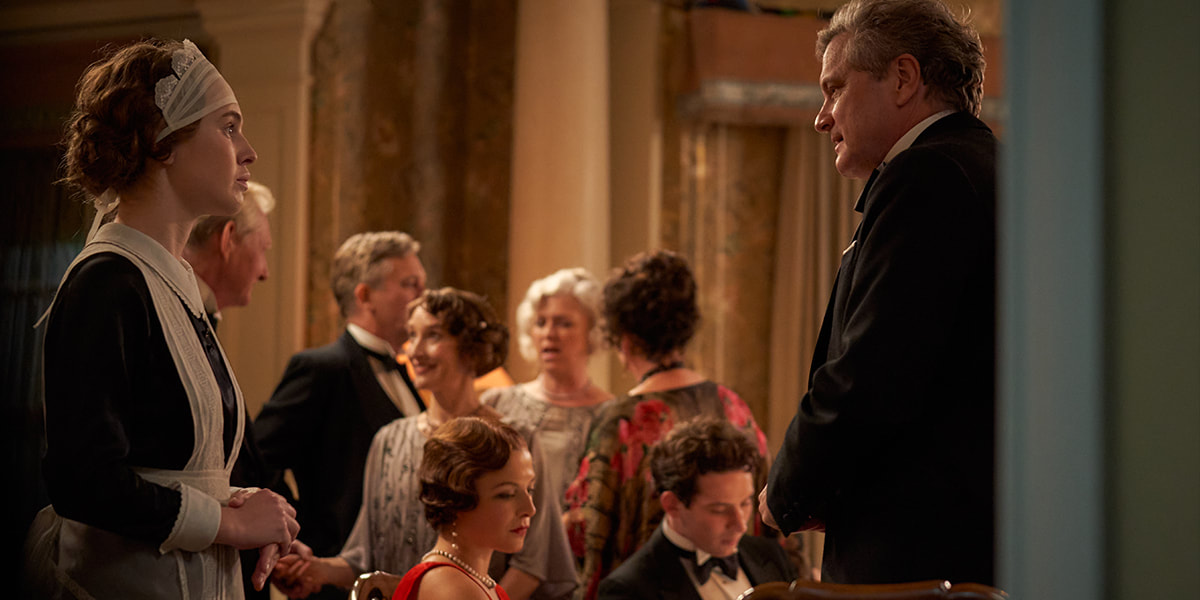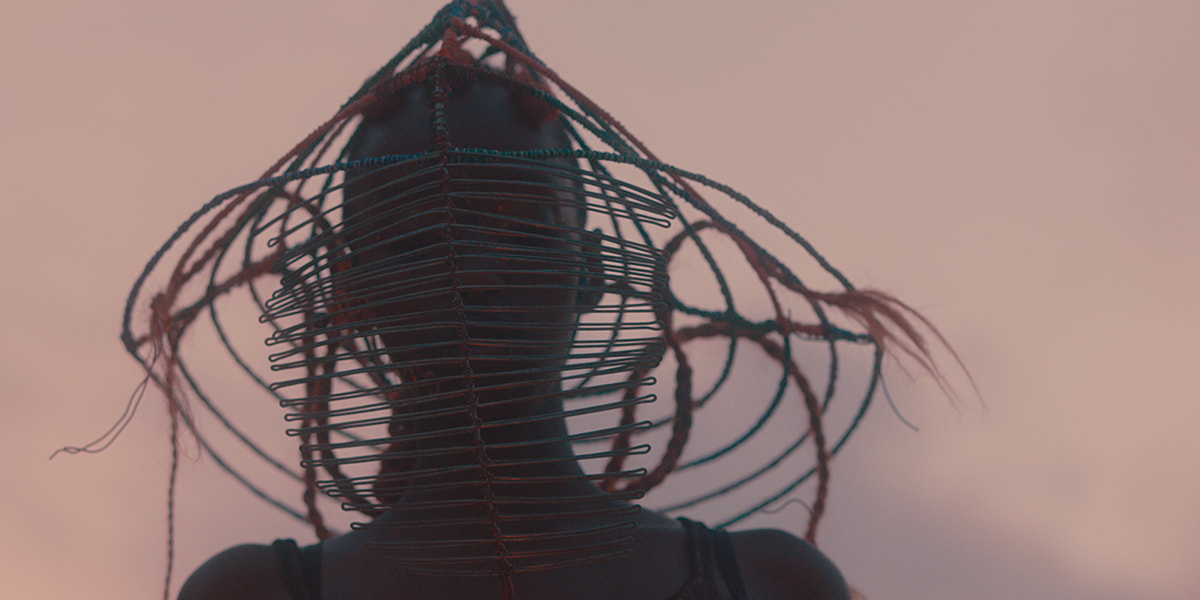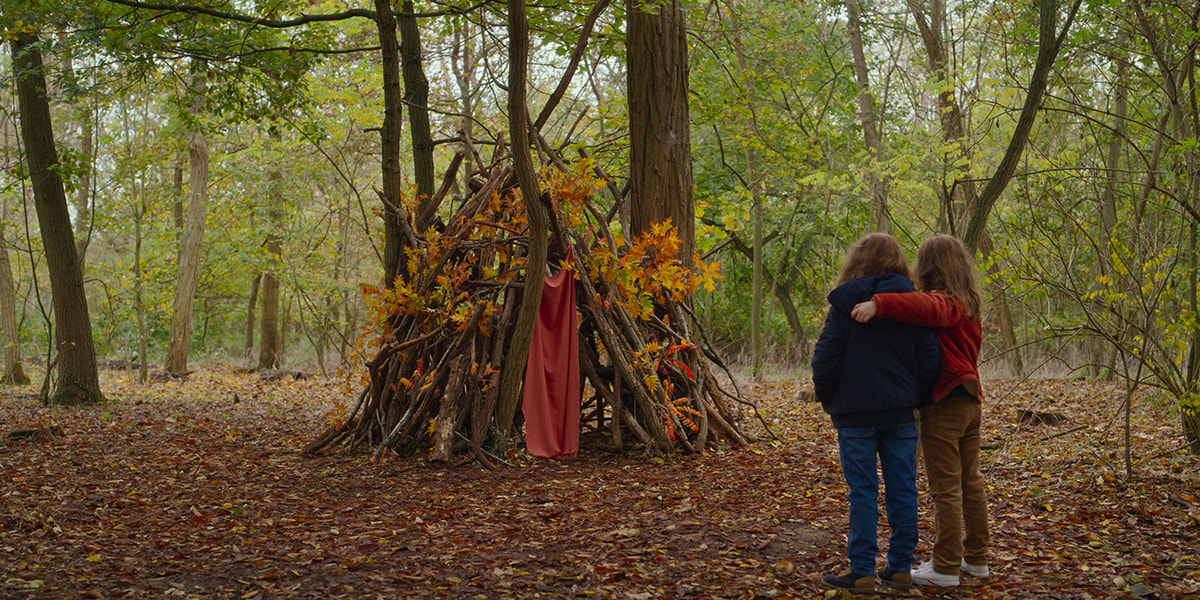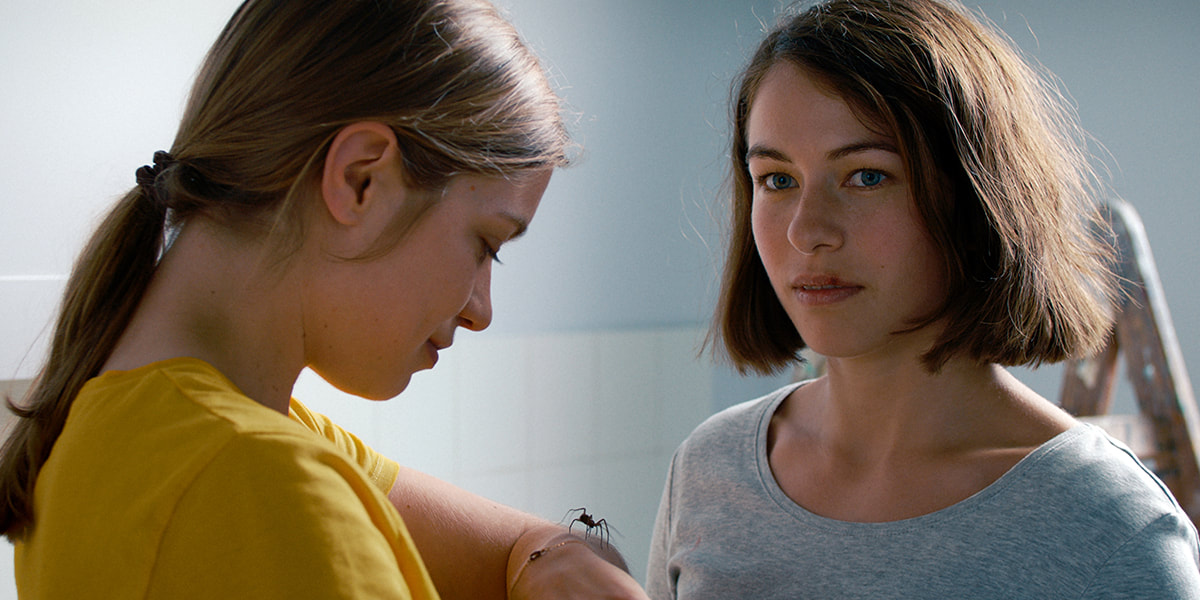|
By Sean Boelman
It is that time of year again for the Fall festival season, in which some of the most exciting films of the year debut and screen, from acclaimed international pictures to soon-to-be awards contenders. One of the most prestigious of these festivals, the Toronto International Film Festival, returns again this year with another hybrid edition, offering both in-person and virtual screenings to Canadian audiences.
For the second year in a row, we at disappointment media have gotten the opportunity to cover the festival remotely. Although we are having to wait to see some of the biggest films to screen at the festival in a theatrical setting when they are released here in the States, we have gotten to watch plenty of great films from around the world. Here are some of our thoughts on the films we have screened! Dionne Warwick: Don't Make Me Over
Dionne Warwick has been in the spotlight in recent months for her hilarious online presence, but before that, she was one of the brightest musical stars in all of history. Dionne Warwick: Don’t Make Me Over is a very by-the-book biographical documentary, but it does justice to its absolutely legendary subject and of course, has plenty of great music. Those looking for an in-depth dive into Warwick’s life story will be disappointed, but it’s a pretty satisfying watch overall.
Becoming Cousteau
Jacques Cousteau is undeniably one of the most influential explorers of all time, so it’s surprising that it took this long for there to be a major biographical documentary about him. Liz Garbus’s Becoming Cousteau is a pretty standard affair, but the charm of its subject is what allows it to stand out. Additionally, the film features some pretty extensive use of newly restored materials from Cousteau’s archives, and it’s always a joy to see that.
One Second
Zhang Yimou is one of the best and most versatile directors working today, having made everything from intimate dramas to martial arts epics. After a years-long delay (presumably due to censorship), his newest film One Second is a beautiful love letter to the cinema. Although there definitely seems to have been a political message cut out of the film, this story of an escaped convict inspiring a community to come together so that he can watch a film to get a glimpse of his daughter is absolutely wonderful.
Silent Night
Cynical holiday movies are a pretty unique breed in that a majority of films set around the festive season tend to be more lighthearted in nature. That said, Camille Griffin’s Silent Night has a definite dark edge to it that works quite well. Although it can sometimes feel like the film bites off a bit more than it can chew thematically, this apocalyptic comedy has a wicked sense of humor that keeps things moving nicely. And the ensemble cast, led by Keira Knightley, Matthew Goode, and Roman Griffin Davis, is exceptional.
The Survivor
In terms of production quality, Barry Levinson’s The Survivor is one of the most accomplished films to play at this year’s TIFF. It’s a flashy, awards-quality Holocaust drama with a great deal of emotion. The cast is great all-around, but Ben Foster’s performance is without a doubt the highlight. It may be a little bit overstuffed, trying to juggle both its sports and war movie elements, but the level of success it has in every other regard more than makes up for it.
DASHCAM
Rob Savage made a splash on the scene with his debut Host, shot during the COVID-19 pandemic over Zoom, but his newest film DASHCAM will prove to be much more divisive. Following an obnoxious online personality who finds herself in over her head during a trip to England, the film has some really strong horror elements in the second half. The first half is funny in what seems to be a satirical way, but upon further research, it’s obvious that Annie Hardy isn’t exaggerating herself that much, and the film becomes much more problematic as a result.
Sundown
Michel Franco’s previous film, New Order, screened on the 2020 festival circuit and split audiences with its enormously angry nature. His newest, Sundown, is a more restrained character study, but its pacing will be off-putting to some. The cinematography showing the Mexican beaches is gorgeous, and of course, Tim Roth gives what is perhaps the best performance in his already accomplished career as a disillusioned member of the upper-class who takes refuge in Acapulco.
The Rescue
Jimmy Chin and Elizabeth Chai Vasarhelyi made one of the best documentaries of the last decade in Free Solo, so their newest film The Rescue was obviously highly anticipated. Although the film isn’t as extraordinarily compelling or gorgeous as their last one, it’s still undeniably well-made. Chen and Vasarhelyi clearly have an eye for capturing extraordinary feats such as this on film and telling the stories of the people who achieved them in a moving way.
Encounter
Hot off his Academy Award-nominated performance in Sound of Metal, Riz Ahmed is delivering yet another demanding performance in Encounter. This time around, he is much better than the movie he is in, following a veteran taking his children on a road trip to protect them from an extraterrestrial threat. The first hour or so of the film is really strong, blending thriller and family drama elements quite well, but once the film reveals its hand, it loses a lot of its steam.
Murina
Antoneta Alamat Kusijanovic’s Murina is perhaps one of the most impressive feature debuts of the year. Although this is a story we have seen done many times before, Kusijanovic’s execution is quite strong in a way that makes it feel refreshing. The three central performances — from Gracija Filipovic, Leon Lucev, and Cliff Curtis — are all great, as is the gorgeous cinematography showing the European beachside. Although nothing comes unexpectedly, the charm of the film lies elsewhere.
Earwig
Lucile Hadzihalilovic’s fantasy film Earwig definitely had one of the more unique premises of this year’s TIFF lineup. While it isn’t exactly what one would call a midnight movie, it has some of the same unabashedly weird characteristics that define that type of film. Following a young girl who has ice cubes for teeth and her caretaker, this is definitely a slow burn. Admittedly, the film does confuse ambiguity for subtlety at times, but the atmosphere is so well-built that it is a hypnotic watch.
The Electrical Life of Louis Wain
Benedict Cumberbatch is no stranger to biopics, but The Electrical Life of Louis Wain is certainly the most unique one he’s been in to date. Following an artist and inventor who specializes in painting pictures of cats, it’s the type of film that benefits from its unabashed quirkiness. Will Sharpe’s visual style is very distinct, with an energy that is… dare I say it… electric. Although Cumberbatch’s performance falls in line much with what he has done in the past, he is great at it, so it’s worth watching.
The Story of My Wife
Ildikó Enyedi’s The Story of My Wife was one of the lowest-rated films at this year’s Cannes, so only the bravest of critics took a chance on the film at TIFF and were rewarded with a surprisingly pleasant watch. Although the almost three-hour runtime is unwarranted, especially given the fact that its story is so simple and straightforward, it’s a charming little romance. The chemistry between Gijs Naber and Léa Seydoux is absolutely electric and what sells the film.
The Eyes of Tammy Faye
Michael Showalter’s The Eyes of Tammy Faye is a would-be prestige picture that hopes to be a comedic biopic, but Abe Sylvia’s script is far too indecisive on its subject to work. For much of the film, it’s hard to tell whether we are supposed to root for, pity, or laugh at the eponymous televangelist, and that creates a lot of really jarring tonal shifts. Jessica Chastain overacts as usual and is very annoying, but it fits here. It’s a shame, because Andrew Garfield’s performance is genuinely great, and Showalter’s direction is solid, but the film is nearly insufferable.
The Good House
Sigourney Weaver is overdue for a strong starring role, but The Good House was not it. Following an alcoholic realtor who reunites with an old flame, the film is an absolute mess tonally. There’s just too much going on in the film, from the main storylines to a subplot about some of her clients, resulting in an ending that is almost laughable. Weaver’s performance is strong as always, serving as the glue to hold the whole thing together, but even she struggles to pull it off.
Three Floors
Italian filmmaker Nanni Moretti has made plenty of acclaimed films, so it was a shock when Three Floors debuted at the 2021 Cannes Film Festival and was mostly panned. And if one wonders if the film is actually that bad, the answer is a firm yes. However, there is something alluringly watchable about this ridiculous melodrama in the same way that it’s hard to look away from a horrible car crash (which is fitting because of the film’s supposedly shocking but nearly laughable opening scene).
The Falls
Plenty of filmmakers have taken on the challenge of telling the story of the COVID-19 pandemic to varying degrees of success. Chung Mong-Hong (whose film A Sun was shortlisted for Best International Feature last year) manages to do so in a way that is surprisingly touching in The Falls. The thing about Chung’s film that works so well is that it isn’t about the pandemic itself, but rather, how people reacted to it, and that results in a film with even more resonant themes.
Snakehead
Director Evan Jackson Leong’s Snakehead is meant to be a crime thriller with a deeper message, but it doesn’t live up to its potential. There is some commentary to be found here about immigration in the United States, but the film gets far too caught up in the tropes of the genre to be anything more than passive entertainment. While predictable, the story has enough in terms of excitement to make up for largely uninspired action and less than impressive performances.
Where Is Anne Frank
Ari Folman’s animated documentary Waltz with Bashir is an absolutely phenomenal film, hence why his family parable Where Is Anne Frank is such a disappointment. The animation is just as strong as one would expect, but from a narrative standpoint, it is absolutely insufficient. Beyond the problem of making Anne Frank a side character in her own story, the film is nearly offensive in how it uses the Holocaust as a metaphor for the modern refugee crisis. It’s undeniably well-intentioned, but misfire after misfire make it nearly unbearable.
You Are Not My Mother
You Are Not My Mother is the type of film that seeks to build horror more through dread than simple scares, but it isn’t terribly effective in doing so. Kate Dolan’s film is based on Irish folklore, but doesn’t explore it in much depth. Instead, what we get is a mostly psychological piece, with slow pacing and much of the suspense coming from not knowing what is true. It manages to be both too straightforward and ambiguous to be even unnerving.
True Things
Harry Wootliff’s True Things is a romance like many we have seen before, but the bleak realism of what it depicts is effectively heartbreaking. Tom Burke and Ruth Wilson create a tremendous dynamic between them, capturing the ups and downs in the relationship. Burke is especially impressive in his role, giving a performance that is equal parts charming and unhinged. The story is at times frustrating, as the psychological cycle the protagonist is experiencing causes a lot of repetition, but it fits the themes well.
Ali & Ava
Much of the charm of the romantic dramedy Ali & Ava is in its simplicity. Following a landlord going through a divorce and a single mother struggling to stay afloat as they form an unexpected connection, the film is sweet in all the right ways, even if it struggles to do anything particularly profound with its themes. The film shows the potential to explore the plight of the British working class, but gets caught up in the basic humanity and empathy of the story. That isn’t necessarily a bad thing, because it’s refreshingly light, but it is unexpected.
Charlotte
One of many Holocaust films to play at this year’s TIFF (and perhaps more surprisingly, one of two animated Holocaust features), Charlotte is a good idea that is executed poorly. From an artistic standpoint, the film is solid, with a strong animation style, even if it does play it safe a bit often. That said, it is almost entirely insufficient from a narrative standpoint. The story is rushed to wrap it all up into an hour-and-a-half runtime, and as a result, any thematic nuance is lost in favor of a bunch of WWII tropes.
Benediction
The new Terence Davies film Benediction is a film that is undeniably good, but will alienate a lot of audiences with its style. Those who have seen Davies’s previous work will know that his films are slow, dry, and meditative, and while that approach works in telling the story of poet Siegfried Sassoon, it’s also not a particularly enjoyable watch as a result. Attempts at a type of acerbic wit throughout are enough to keep the viewer from being totally disinterested, and a phenomenal performance from Jack Lowden is nearly captivating, but it’s a bit too dull to work.
Montana Story
Scott McGehee and David Siegel’s Montana Story is, not unexpectedly, a gorgeous film to behold, but from a narrative standpoint, it isn’t all that impressive. Following two estranged siblings who reunite as their father nears the end of his life, the film offers a lot of genuine emotion but nothing that we haven’t seen before. That said, the two central performances from Owen Teague and Haley Lu Richardson are both great, bringing a lot of empathy to make the quiet, somber nature of the film work.
Lakewood
Many jokes have been made about the fact that every year’s TIFF lineup seems to feature a film starring Naomi Watts, and this year’s selection proves that trend to be absolutely dire. Phillip Noyce’s Lakewood is without a doubt the single worst film that screened at this year’s festival, a borderline insensitive school shooting thriller that milks genuine tragedies for the sake of supposed thrills. Shot during the pandemic, this is effectively a one-woman show for Watts, and while she gives it her all, it isn’t enough to boost an aggressively bad film.
Night Raiders
The Canadian sci-fi film Night Raiders is a massive disappointment, not because it’s bad (because it isn’t), but because the glimpses of brilliance are so obvious that one can’t help but think about what this could have been. Transporting the historical atrocity of residential schools to a dystopian setting, the film follows a mother who tries to break her daughter out of a state-run camp. It’s such an intriguing concept, but the dialogue is frequently mediocre and the performances consistently underwhelming. That said, filmmaker Danis Goulet shows a lot of potential here in her debut, and hopefully she will live up to it with her future work.
Compartment No. 6
Juho Kuosmanen’s Compartment No. 6 is a refreshingly light film that is a wonderful reminder of how important it is for us to connect with one another. Following two very different strangers who befriend each other when they are forced to share a cabin on a long train journey across Europe. It’s a lot more subtle than most films which explore a union between two people from very different walks of life thanks to some brilliant dialogue and excellent character work. It isn’t the weightiest film in this year’s lineup, but it has lots of good observations.
All My Puny Sorrows
Based on the novel by Miriam Toews, the drama All My Puny Sorrows is destined to be one of the biggest misfires of the festival. Following two sisters who are going through mental health crises, it’s clear that writer-director Michael McGowan had the best of intentions when exploring these themes, but he absolutely fumbles them. Allison Pill and Sarah Gadon try their hardest to salvage the script but end up overacting, likely due to poor direction, and all of the technical elements are overdone. It’s the type of film that wants to be a tear-jerker, but it doesn’t even succeed in that.
Hellbound
A new supernatural procedural series from South Korean filmmaker Yeon Sang-ho, Hellbound is set in a world where people receive visions of a spirit telling them when they will be condemned to Hell, with a demon later fulfilling the prophecy. It’s an intriguing premise with shades of Final Destination, but it’s executed poorly in a way that isn’t all that compelling. The three (out of six) episodes that screened at TIFF were fine, but filled with fluff, making it clear that this might have been more suited for a feature film format.
Mothering Sunday
Eva Husson’s film Mothering Sunday is a steamy period drama that will be overwhelmingly familiar, but is a very well-executed entry into its genre. The film follows a maid sharing one final, passionate day with the wealthy man she loves before he leaves to marry for status, and there really isn’t much more to this film than a bunch of sex. That said, the cinematography is gorgeous, the costumes are exquisite (when the characters are even clothed, which isn’t very often), and the performances by Odessa Young and Josh O’Connor are great. It’s a film that delivers exactly on its promises, which makes it hard to complain about.
Neptune Frost
Saul Williams’s output as a musician is certainly very interesting, so one should expect no less of his first effort as a filmmaker (co-directed with Anisia Uzeyman). Neptune Frost is an independent, low-budget musical about an intersex hacker and anti-colonialism. If that sounds like a lot to handle in one movie, that’s because it is, but Williams and Uzeyman pull it off gracefully. And as for the soundtrack, it’s weird and creative, a soundscape mixing traditional African beats with electronic and hip-hop sounds. It’s not quite like anything you will have seen before, and that’s a good thing.
Petite Maman
As the follow-up to her widely-acclaimed period romance Portrait of a Lady on Fire, filmmaker Céline Sciamma has made an equally restrained family film in Petite Maman. Following a young girl who discovers an unexpected friendship after her grandmother passes away, this is a lovely little film about the innocence of childhood. The visuals of the film are just as gorgeous as one would expect, and young actress Joséphine Sanz is absolutely wonderful, but the film is just too low-key to be anything more than merely adorable.
The Girl and the Spider
Ramon and Silvan Zürcher’s The Girl and the Spider is the type of talky international drama that makes up a lot of festival lineups. Following a woman as she prepares to move out, causing her to reflect on her connection with her roommate, this is interesting as a relationship drama that isn’t about romance. It’s occasionally poetic, and the things it has to say about how interactions leave a lingering impact on both ourselves and others are somewhat profound, but the character development is far too thin for the film to resonate.
The 2021 Toronto International Film Festival runs September 9-18.
0 Comments
Leave a Reply. |
The Snake HoleRetrospectives, opinion pieces, awards commentary, personal essays, and any other type of article that isn't a traditional review or interview. Archives
June 2024
Categories
All
|
|
|
disappointment media
Dedicated to unique and diverse perspectives on cinema! |


